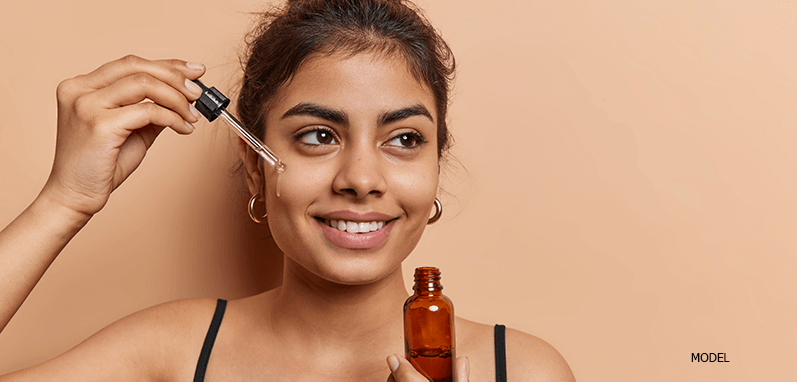Skincare Ingredient Focus: Resveratrol

In the quest for radiant and healthy skin, the realm of skincare is constantly evolving, with a myriad of ingredients vying for attention. One such ingredient that has captured the spotlight in recent times is Resveratrol. Renowned for its potent antioxidant properties, Resveratrol has gained traction in skincare regimens across the globe. In this comprehensive guide, we will delve into the nuances of Resveratrol, its benefits for the skin, how to incorporate it into your routine, and considerations for different skin types and conditions.
What is Resveratrol?
Resveratrol is a natural compound that is found in certain plants including red grapes, berries, peanuts, and Japanese knotweed. It is classified as a polyphenol and is known for its antioxidant and anti-inflammatory properties. As an antioxidant, resveratrol helps protect the body from damage caused by unstable molecules called free radicals, which can contribute to aging and various diseases.
Resveratrol gained attention for its potential health benefits, particularly in relation to heart health. Studies have suggested that resveratrol may help reduce inflammation, lower blood pressure, and improve blood flow. It has also been studied for its potential anti-aging effects and its ability to protect against certain diseases, including cancer.
How Can Resveratrol Benefit the Skin?
The skin stands to gain significantly from Resveratrol’s multifaceted benefits. Its powerful antioxidant nature aids in neutralizing free radicals, thereby potentially reducing oxidative stress and damage caused by environmental factors like UV radiation and pollution. Additionally, it may assist in supporting the skin’s natural collagen production, promoting elasticity and firmness while potentially reducing the appearance of fine lines and wrinkles.
Resveratrol skin benefits may include:
Antioxidant Protection: Resveratrol acts as a potent antioxidant, helping to neutralize free radicals generated by factors like UV radiation, pollution, and stress. By doing so, it helps prevent oxidative stress and damage to skin cells, reducing the signs of aging such as wrinkles, fine lines, and sagging.
Anti-Aging Effects: It may stimulate collagen production, a protein crucial for maintaining skin elasticity and firmness. This can help improve the skin’s texture and reduce the appearance of wrinkles and fine lines.
Anti-Inflammatory Properties: Resveratrol has anti-inflammatory effects that can soothe skin irritation and redness, making it beneficial for individuals with inflammatory skin conditions like acne or rosacea.
UV Protection: Some studies suggest that resveratrol might offer mild protection against UVB-induced skin damage, although it is not a replacement for sunscreen. It may complement sunscreens by providing an additional layer of defense against UV-related skin issues.
Skin Brightening: Resveratrol may also contribute to a more even skin tone by inhibiting melanin production, potentially reducing the appearance of dark spots or hyperpigmentation.
Wound Healing: Research indicates that resveratrol might aid in wound healing by promoting cell regeneration and tissue repair. It’s been shown to even help maintain a healthy skin barrier.
How To Use Resveratrol For Skincare
While embracing a diet rich in Resveratrol-containing foods like grapes, blueberries, and dark chocolate can complement skincare efforts; the best way to unlock the power for Resveratrol for your skin is through topical application. Look for serums, creams, lotions, or facial oils that specifically mention resveratrol as one of their key ingredients. These products are formulated to deliver resveratrol directly to the skin.
Pay attention to the concentration of resveratrol in the product. Higher concentrations may offer more potent effects, but it is essential to start with lower concentrations if you have sensitive skin to avoid irritation. Additionally, consider the formulation to ensure compatibility with your skin type (e.g., oily, dry, sensitive).
Adding Resveratrol To Your Skin Care Regimen
Here is a simple guide to integrating a new Resveratrol product into your current skin care routine.
- Thoroughly Cleanse The Skin
Before applying any skincare product, it is important to start with clean skin. Use a gentle cleanser to remove dirt, oil, and makeup from your skin. Pat your face dry with a clean towel.
- Apply Resveratrol Serum or Cream
Take a small amount of resveratrol serum or cream and apply it to your face and neck. Gently massage it into your skin using upward motions. Allow the product to fully absorb before moving on to the next step.
- Follow with Moisturizer
To lock in the benefits of resveratrol and keep your skin hydrated, follow up with your regular moisturizer. Choose a moisturizer that suits your skin type and preferences. Apply it evenly to your face and neck.
- Use Resveratrol Masks for Extra Nourishment
For an added boost of resveratrol, consider using a resveratrol-infused sheet mask or overnight mask once or twice a week. These masks can provide intense hydration and deliver a higher concentration of resveratrol to your skin.
- Protect Your Skin from the Sun
Although resveratrol offers some protection against UV damage, it is still important to use sunscreen daily. Apply a broad-spectrum sunscreen with an SPF of 30 or higher to shield your skin from harmful UV rays.
- Be Consistent
To see the best results, consistency is key. Incorporate resveratrol into your skincare routine and use it regularly. Over time, you should start noticing improvements in your skin’s texture, tone, and overall appearance.
Who Can Benefit from Resveratrol in Skincare?
Resveratrol can provide benefits to individuals of all skin types, although individual responses may vary. Adding Resveratrol is a great option for:
- Individuals seeking to address moderate to severe symptoms of aging such as lines and wrinkles
- People who have pigmentation issues such as hyperpigmentation or uneven skin tone
- Anyone seeking to protect their skin against environmental stressors such as pollution and UV radiation
- Individuals who deal with long-term skin issues like acne, rosacea, or eczema
- Anyone who is into natural skin care (prefer natural or plant-based skincare ingredients)
Can You Use Too Much Resveratrol? Are There Side Effects?
While Resveratrol is generally well-tolerated and cited as being safe for use on all skin types, using excessively high concentrations may not necessarily enhance its benefits and could potentially lead to skin irritation in sensitive individuals. Always follow recommended usage guidelines provided by the product and consider consulting a dermatologist for personalized advice.
Resveratrol Compatibility with Other Ingredients
Resveratrol is usually compatible with many skincare ingredients. However, it is prudent to be cautious when combining it with certain exfoliating acids or highly active ingredients, as their simultaneous use might cause skin sensitivity or irritation.
Resveratrol stands as a promising addition to skincare routines, offering a natural and potent solution to combat signs of aging and support overall skin health. When considering its incorporation, understanding its benefits, suitable usage, and potential interactions can pave the way for harnessing its full potential, contributing to a healthier and more radiant complexion.
Disclaimer: The contents of the Westlake Dermatology website, including text, graphics, and images, are for informational purposes only and are not intended to substitute for direct medical advice from your physician or other qualified professional.
